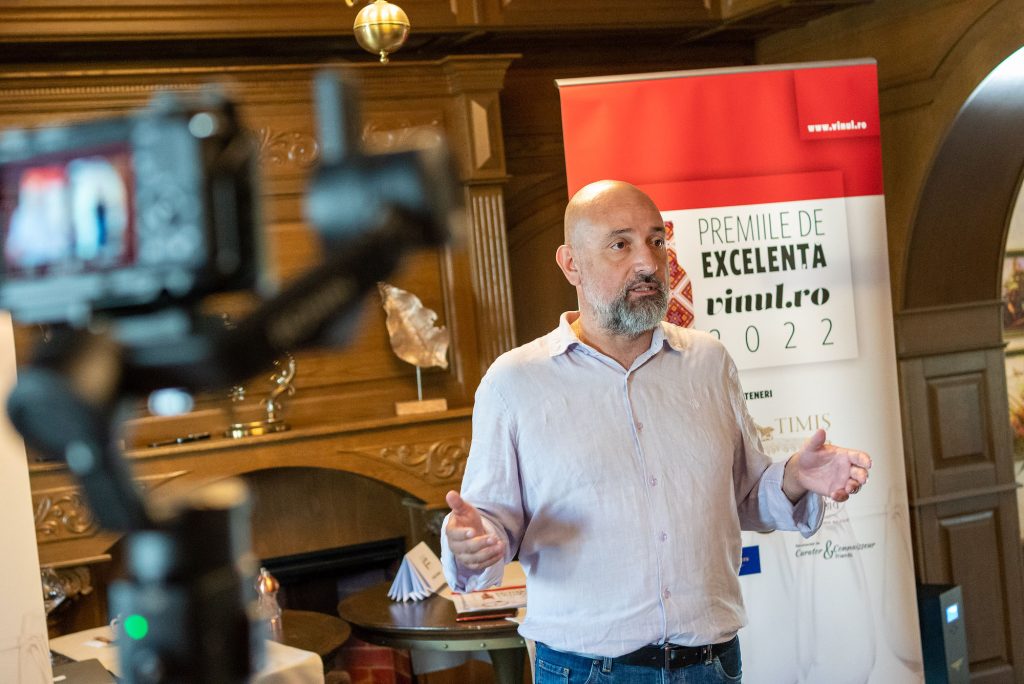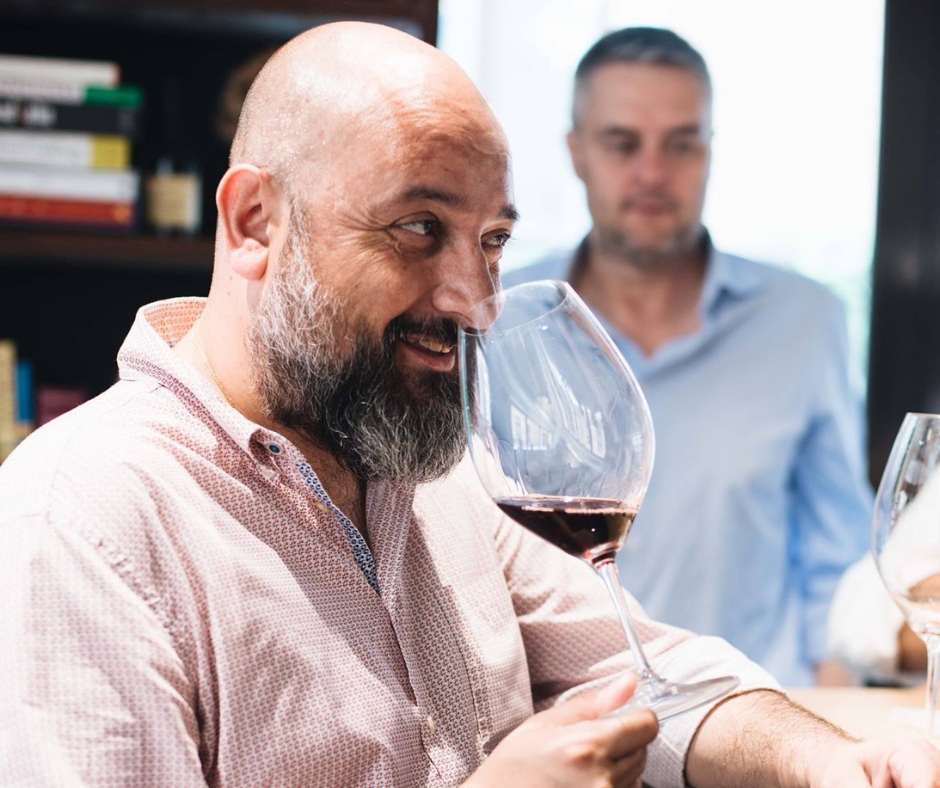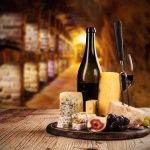In the second part of our conversation with Cezar Ioan, founder of Vinul.ro and co-initiator of National Gastronomy and Romanian Wine Day law, the discussion revolves around what makes a legal holiday a true national celebration, but we also discuss the generational differences in wine consumption and take a quick glimpse into the success of Moldova’s wines in Romania.
October 2, 2023 – National Gastronomy and Romanian Wine Day
Wines of Romania: You, along with Cosmin Dragomir and chef Nico Lontras, are the initiators of this project – which has become law – the National Day of Romanian Gastronomy and Wine, celebrated on the first Sunday of October. This year. It is soon, on October 2nd… What has happened since May 2019, and do we have reasons to celebrate?
We have the framework and that’s about it. We managed to obtain this official recognition also with a wide support of the National Association of Cooks and Confectioners in Tourism (ANBCT), the La Mama restaurant chain, the Academy of Economic Studies (ASE) in Bucharest, and Guerilla Cooking, through Alexandru Petrescu.
There have been a few events over time, in Constanta, at Casa Timis in Dealu Mare, in Bucharest, but not nearly enough to say we have a well-established celebration. But we also have to keep in mind that there were two years under pandemic lockdown, so it would have been difficult to organize anything…

Cezar Ioan: You must be proud of yourself
Wines of Romania: It’s a still young celebration, and it takes time to grow roots.
Cezar Ioan: It needs many things. Firstly, organizing, and secondly, pride. I’ll explain both. When I say organizing, I mean that for a holiday to exist, it must be embraced. Some destinations, and I’m not necessarily talking about big urban centers, but places like Eforie, Sovata, Baile Herculane, or any place that could benefit from this occasion to fill their rooms and restaurants, places that could benefit from a win-win situation in the world of gastronomy and wine. They can establish themselves as first, as initial destinations, the first to set the trend, to lead the way. I’m sure there’s already an audience – people who want to enjoy authentic, local things, flavors they remember from their parents and grandparents.
And this brings us to the second component, which is pride. I’m talking about a genuine, authentic pride, local cuisine as we learned from previous generations. Yes, it can be peasant food in a way, because we learned to build our cuisine based on the resources we had available at a certain time, but that doesn’t mean we have nothing to offer. Look at Mircea Groza’s book, "Zamuri – Soups, broths, and sour soups," which has nearly 200 soup recipes, collected from Transylvania alone. And what are we doing? All the restaurants in the country serve the same six soups, maybe a daily special with schnitzel or chicken livers… Why is there Radauti soup served on the seaside? And why can’t you find piperchi targasiti (red bell peppers and cheese stew), Dobrogea pies, and all the local foods on the coast? Local traditions and pride must be revived; otherwise, we risk not only missing the opportunity for a gastronomy and wine celebration but also losing important gastronomic traditions. And since it’s also the day of wine, I have to say I’d like to see the wine producers in this country become proud of what they are and celebrate their own wine properly…
Wines of Romania: Why do we drink wine, while young people don’t?
Cezar Ioan: We are the children of a generation that drank wine; our grandparents and parents drank wine. It had nearly disappeared at one point but was still there in our childhood. And when we saw it making a comeback, with the help of European funds, pre-EU accession funds, there was a reference in our memories. At that time, cocktails were missing – all this mixology and gins – they were missing. You only had gin and tonic, Campari orange, and some brandy with coffee beans, warmed up by a candle, that was the maximum sophistication at the time. And wine promised to become something else, something to bring complexity, to require a certain understanding, some knowledge. But then, other drinks caught up…

Cezar Ioan: Romanian wine is just entering adolescence
Wines of Romania: You’ve witnessed the journey of Romanian wine from its rebirth until today. Where do you think we are?
Cezar Ioan: I think we are somewhere between puberty and adolescence. The beginning, if you remember, was quite sad. There were those people in brown, suits so used that became polished, absolutely no women in any event, and the events… I remember when Cramele Halewood tried to do something in their attic, we’re talking about Paris Street, right in the city center, in the heart of the city, they tries to gather people to taste their wines. And with great difficulty, people would barely attend a free event; they thought they would be seen as drunks if they showed up. Women were out of the question, and it was even riskier to be labeled as a "drunk", as a woman; they would apologize and say it’s a thing for men. But this has changed, clearly and fundamentally. There are many women in wine, both in production and in marketing, sales, promotion, writing, communication, sommelier work, organizing events. And, of course, they always take part in tastings.
The problem is that we can’t attract people under 35 or under 30. Maybe some under 35, but people under 30 rarely attend tastings. And it may be our problem. Maybe we don’t speak the same language anymore, verbal or non-verbal, we don’t have the right clothing, the style of music that resonates with people under 30. But the wine industry is just starting to grow… It’s only showing the first signs of maturity, so I would say we are witnessing the entry into adolescence. It has only been 15 years for some, 20 for others… We’re trying to figure out what we want to do, how we want to present ourselves to the world.
Cezar Ioan: Wine means atmosphere, music and gastronomy
Wines of Romania: Now, honestly, could you see a Sassicaia with this “trapanele” music?
Caesar Ioan: Maybe not me. Although… I had a very strange encounter with a Masseto at one point. It wasn’t my choice; I wouldn’t have made that choice, but someone at our table ordered a Masseto at 2 in the morning after we had tasted several other things, and none of us understood it… But it was very good the morning after, with omelet. It was perfect, even though it’s not a morning wine. It’s a good way to wake up in the morning, if you have the free time… Tradition demands sparkling wine on holiday mornings, but I guarantee you won’t refuse a Masseto.
Wines of Romania: So, back to the youth? Why do so many young people drink Moldovan wine?
Cezar Ioan: We return to the problem I mentioned earlier – language, clothing, music… At this hour (note: see the first part of the interview), the Kiseleff boulevard is closed, as I mentioned. But it’s not just a joint effort by the producers; it’s been many years of well-applied research. Moldova didn’t enter Romania with just wine. They came with wine, music, gastronomy, big festivals, the feeling of really throwing a party , the Dionysian air that wine implies. Moldovan wine doesn’t just mean Purcari; it means Zdob si Zdub, Irina Rimes, Carla’s Dream, it means traditional dishes, homemade food…
In the upcoming third part of this interview, we discuss what’s holding producers back, the importance of wine tourism, and the need for all kinds of reading.
- 📃Interview by Radu Rizea
- 📷 Source Photos: Cezar Ioan







